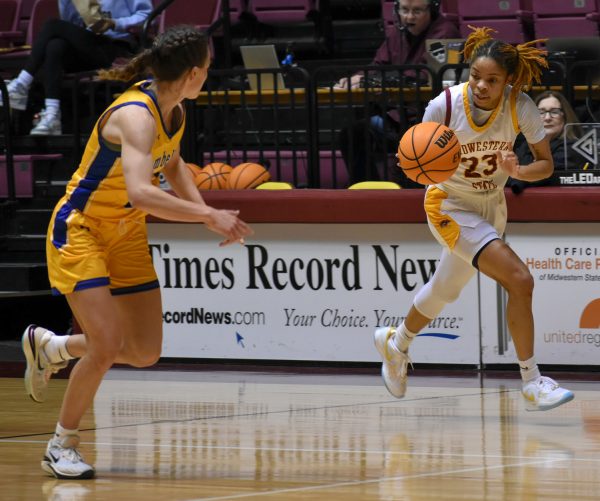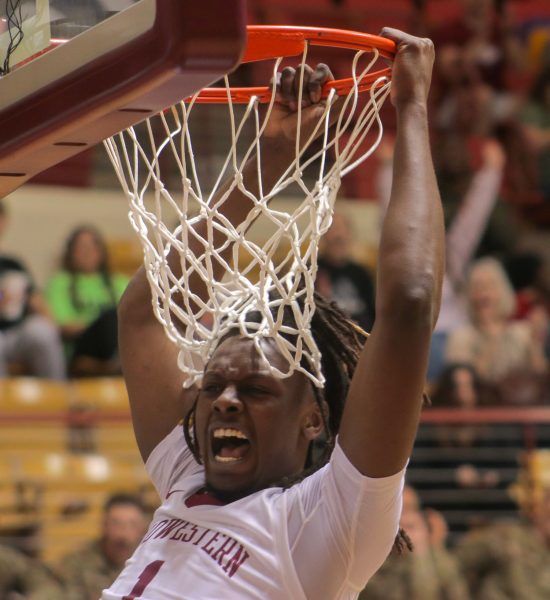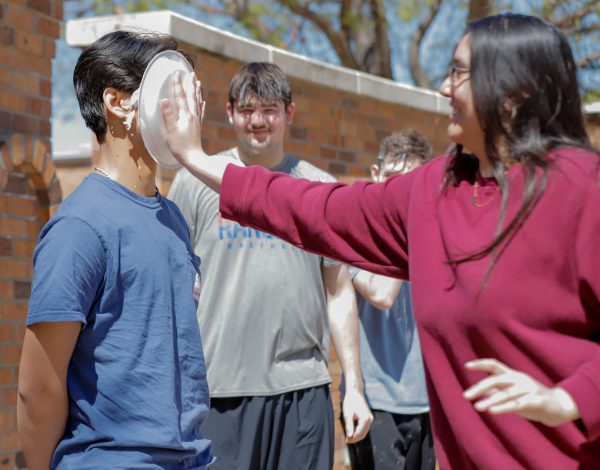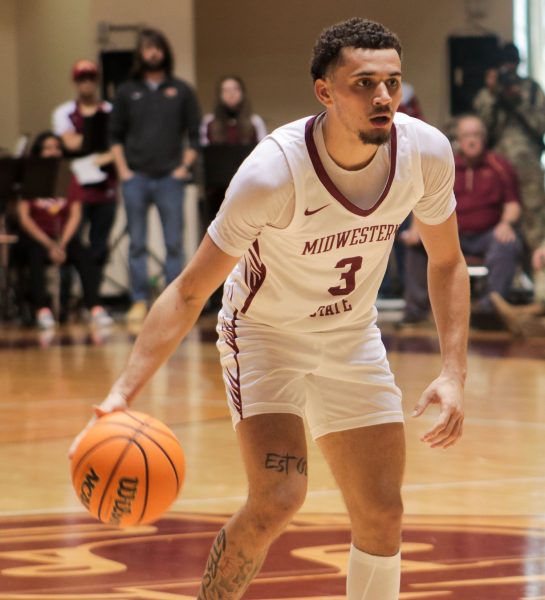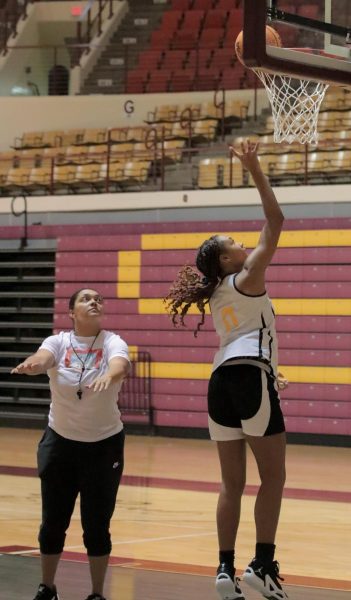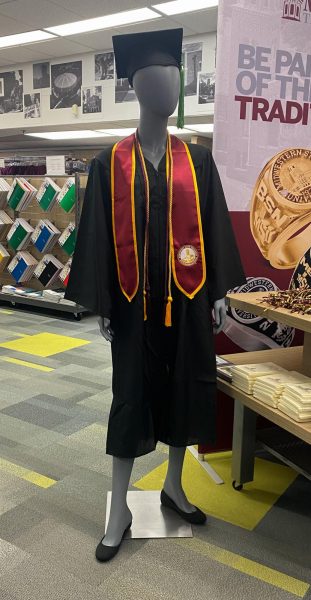Resources available for students struggling with mental health issues
Counseling Center members respond to the possibility of suicide on campus by providing extensive resources to students who may be struggling throughout the year to help maintain a safe environment for college students to live and attend school according to Pam Midgett, Counseling Center director.
“I really believe in the potential of all young people and I want to help them not feel suicidal so they can do well in school and go ahead and make their mark on the world,” Midgett said. “Sometimes things get in the way of that.”
Midgett said five professionals including one licenced professional counselor with a doctorate, three master LPCs, one masters LPC intern work at the Counceling Center, as well as graduate students within the counseling and psychology departments who counsel students under supervision.
“Suicide, depression and anxiety are seen in people who are highly educated and those who are not in college,” Midgett said. “We also see depression and suicidal ideation in people who are older adults middle age adults, and those who are young in adulthood like college students. We have a diverse group of students who come here and some of them have the illness of depression and some of them feel suicidal.”
According to Midgett, it’s important for students who feel suicidal to have access to someone to talk to and that’s what the Counseling Center provides.
“Sometimes when students are depressed they have isolated themselves,” Midgett said. “That’s what depression makes you do. It makes you wanna be alone and isolate from friends family and others. [They] just really need somebody to talk to, help them with the way their formulating their thoughts, listen to them and help them with their feelings.”
Midgett said the Counseling Center does a lot of things to reach out to students. Academic workshops which teach students about time management, organization, test anxiety, choosing majors and study skills are available in the spring semester. In the month of November, members of the Counseling Center offer to help students prepare for finals and alleviate stress.
The Counseling Center staff members help students deal with problems before they become problems by providing training about consent and sexual assault which often lead to depression and suicidal thoughts. They also offer group counseling for student success with ADHD and for the LGBT Plus community.
Midgett said there are problems the members of the Counseling Center can’t help with, however they provide referrals to help students get help and find resources in any situation.
Midgett said while the Counseling Center will first try counseling students through their feelings, sometimes a combination of counseling and medication helps.
Despite outreach, a difficulty the Counseling Center faces is that most students who are experiencing depression usually never reach out to the Counseling Center.
“One of the things that occurs on college campuses across the United States is about 11,000 students per year complete suicide,” Midgett said. “Of those only 30 percent have come to the counseling center on their campuses. That’s one reason we like to do projects like the depression screening, the QPR training and having speakers come to campus about this topic. We want all the faculty members, staff members and students to help us and the Counseling Center reach out to students who are struggling.”
In the event of a suicide, the Counseling Center works to make resources available to friends and family.
“If there was a suicide on our campus, or something like that, we’ve tried to stay very open to those who are left behind and are grieving,” Midgett said. “We [are] happy to talk to family members, parents and students who were their friend. We do whatever we can to help the grieving.”
Jaclyn Carranza, athletic training senior, said she has experienced suicidal thoughts and has attempted suicide twice.
“I’ve talked to multiple therapists outside of MSU and there are the psychologists or the therapists that really want to figure out why you feel this way and help you figure out what kind of exercise that would help,” Carranza said.
Zachary Zoet, graduate assistant, said mental health practitioners are passionate about addressing suicide in all aspects.
“Obviously suicide is something very serious that deeply impacts all the persons around the loved one,” Zoet said. “It causes ripple effects for years to come and it’s something that can be preventable.”
Zoet said the Counseling Center works with other groups and departments on campus to help reach students who may not attend workshops and speaker events. If the housing office or campus police notify the Counseling Center that a student may be at risk, they may respond in different ways depending on the situation. Zoet also said there is always someone available to talk in a crisis to even if campus is closed
“We go to where the person is, coordinate their care, or figure out what we need to do whether it’s safety planning or, perhaps, a safer place,” Zoet said. “It really depends on the person.”
According to Zoet other resources are available for students, faculty and staff to reach out to on campus.
“Everyone is kind of on the same team,” Zoet said. “The psychology clinic, us [Counseling Center], campus police and housing help with prevention. All you have to do is ask for help and it will be readily supplied.”
Reaching students with the information about the resources available is difficult.
“To be honest, I don’t know what we have. I know we have a counseling center but I don’t even know if its free or not,” Caleb Kiser, undecided freshman, said.
According to Zoet, the students play a role in helping their friends and pointing them in the direction of resources.
“Not every student is going to be in the same places,” Zoet said. “We do a diverse amount of outreach, but we’re never gonna hit everyone. It’s just we’re never going to be able to sit down and have a face to face with every student. Every semester we give training for how to intervene if one of you friends or loved ones is having suicidal thoughts and what you can do. We try and train the student body to be able to help their friends and loved ones.”
Aly Ramirez, education freshman, said she attended several sessions the Counseling Center arranged. She said they do a good job training students to know the signs of mental health and how to respond.
“It’s important to be open talking about suicide to create a support group who can help work through feelings and thoughts of suicide,” Ramirez said. “If we see the signs or someone openly expresses those thoughts, the counseling center does a really good job with making sure they get you in the same day. If its an emergency kind of thing then they make sure they come in right away.”
Ramirez said the role of the student body is supporting their peers in everyday life.
“I feel like its more on the student body because the Counseling Center, while they’re there and it’s a resource, they’re not walking with us day-to-day or texting us. They can’t be with 6,000 plus students all the time, but if we see someone struggling, just being a human and asking ‘Hey, how are you? Are you doing okay?’ is a huge deal.”
Carranza said friends are one of the most important things for a person who’s struggling with depression.
“My friends are like family to me,” Carranza said. “Knowing that I can talk to them about anything and they’re going sit with me and listen to all of the stuff that I have to tell them feels good. Off of that I have joined a sorority so that I could have a bigger family because it is a sisterhood, and I’ve found that I could truly just go up to any of them and just talk to them about anything.”
Midgett said many of the students who attend the training sessions and talks the Counseling Center organizes are students who are looking to be better prepared to help their peers through hard times.
“I find that the students on our campus really wanna help one another. They like each other and generally want good things to happen to their peers. Some of the students who come to these events are interested in being ready to help others if they were to meet somebody who needed some help,” Midgett said.
Carranza said there is a huge personal role in getting better.
“What’s helped me the most is thinking of everything good I have,” Carranza said. “I’ve been making a list of everything I’m grateful for and all the positives in my life because it’s so easy to go to the negatives and think of the bad things that are going wrong when there’s tens of millions of good things that are going on at the same time.”
Carranza said it’s important for personal healing to let go of the past and forgive.
“Going back to faith, trying to forgive the people who did hurt me in that way. People always say ‘Forgive and forget,’ but you really never forget,” Carranza said. “God wants you to forgive, that’s what I’m called to do, so I’m gonna do it anyways, and forgiving that person also helps [personally].”
Carranza said she wanted people to know how important being open about thoughts and feelings of suicide and depression is.
“How can anyone help if no one knows?,” Carranza said. “That’s my biggest thing. Talk to someone. It doesn’t matter who it is. Talk to someone who really wants the best for you.”
RESOURCES
- Counseling Center 940-397-4618
- Campus police 940-397-4239
- National Suicide Prevention Lifeline 1-800-273-8255



